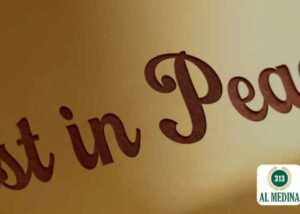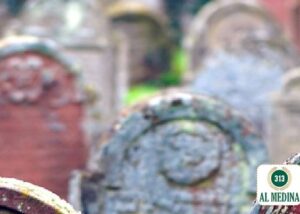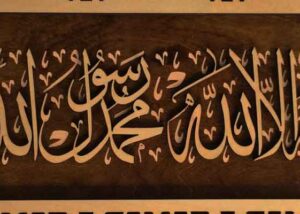Quran
Hadith
Islamic Text
بِسْمِ اللَّهِ الرَّحْمَنِ الرَّحِيمِ
In the Name of Allah Most Merciful Most Kind
Short Answer
You are permitted to make Dua for the deceased in your own words. However, Duas from Quran and Sunnah contain significant blessings, so one should make those Duas too.
Hadith
عَنْ وَاثِلَةَ بْنِ الْأَسْقَعِ، قَالَ: صَلَّى رَسُولُ اللَّهِ صَلَّى اللهُ عَلَيْهِ وَسَلَّمَ عَلَى رَجُلٍ مِنَ الْمُسْلِمِينَ، فَأَسْمَعُهُ يَقُولُ: اللَّهُمَّ إِنَّ فُلَانَ بْنَ فُلَانٍ فِي ذِمَّتِكَ، وَحَبْلِ جِوَارِكَ، فَقِهِ مِنْ فِتْنَةِ الْقَبْرِ، وَعَذَابِ النَّارِ، وَأَنْتَ أَهْلُ الْوَفَاءِ وَالْحَقِّ، فَاغْفِرْ لَهُ وَارْحَمْهُ، إِنَّكَ أَنْتَ الْغَفُورُ الرَّحِيمُ
(Sayidina) Wathilah bin Asqa narrated that the Messenger of Allah ﷺ offered the funeral prayer for a man among the Muslims. Then I heard him ﷺ say: ‘O Allah, so-and-so the son of so-and-so is in Your protection and the rope of Your security. Protect him from the trial of the grave and the torment of the Fire. You are the fulfiller of rights and You are the Truth. Forgive him and have mercy on him. Indeed, You are the Oft-Forgiving, Most Merciful.’ (Ibn Maja 1499, Hasan).
Explanation
Although one is permitted to make Dua for the dead in his own words and language, it is beneficial to pray using the Sunnah Duas in the Arabic language too. Additionally, the Hadith above mentions one such Dua narrated from the blessed Prophet ﷺ. Furthermore, when entering graveyard, a Muslim should give salaam to the deceased.
Misconceptions
There is a misconception amongst many in our communities. This is because some individuals believe that only a son or daughter can make Dua for the deceased. However, this belief contradicts numerous Hadith narrations as well as the position of leading Imams of Ahl al-Sunnah.
عَنْ أَبِي هُرَيْرَةَ رَضِيَ اللَّهُ عَنْهُ، قَالَ: نَعَى لَنَا رَسُولُ اللَّهِ صَلَّى اللهُ عَلَيْهِ وَسَلَّمَ النَّجَاشِيَّ صَاحِبَ الحَبَشَةِ، يَوْمَ الَّذِي مَاتَ فِيهِ، فَقَالَ: اسْتَغْفِرُوا لِأَخِيكُمْ
Abu Huraira (May Allah Most High be pleased with him) said, Allah’s Messenger ﷺ informed us of the death of Negus (Najashi), the king of Abyssinia, on the very day on which he died, and he ﷺ said, ‘Seek Allah’s forgiveness for your brother.’ (Sahih al-Bukhari, 1327).
In the Hadith narration above, we observe the blessed Prophet ﷺ asking the Sahabah to make Dua for al-Najashi, the king of Abyssinia. This was the case despite the fact that the Sahabah were not children of al-Najashi. Consequently, this is a clear proof for the fact that other than the children of the deceased can make Dua for them.
And Allah Most High Knows Best.
–Answered by Shaykh Noorud-deen Rashid (04.06.23)






